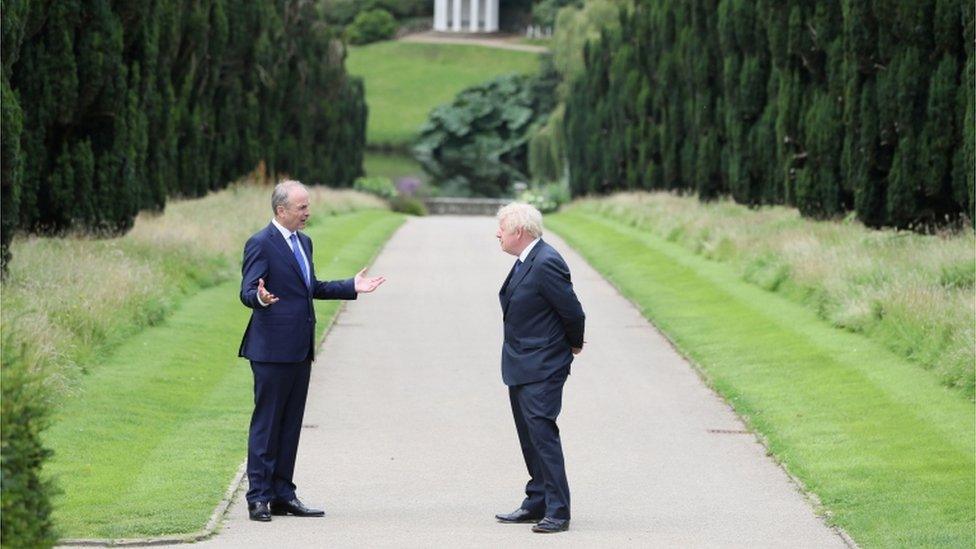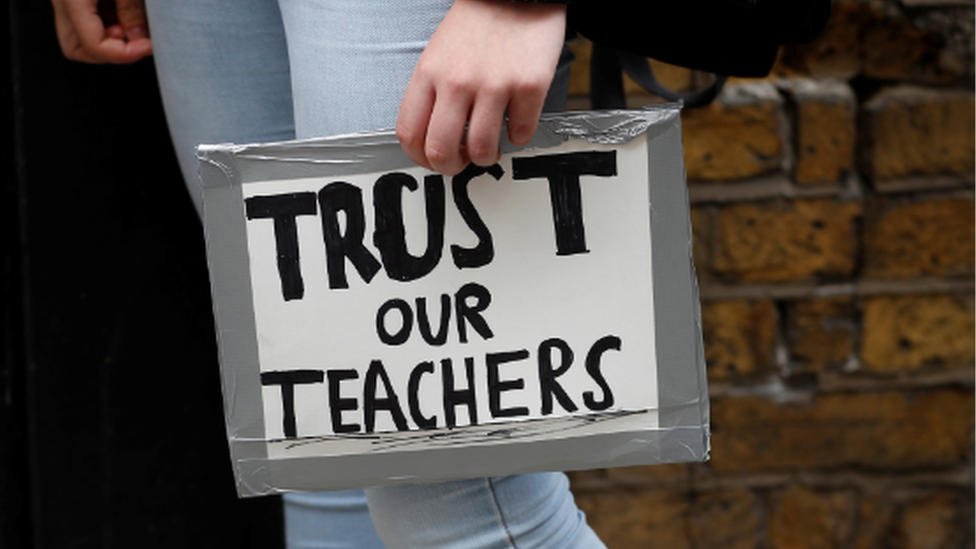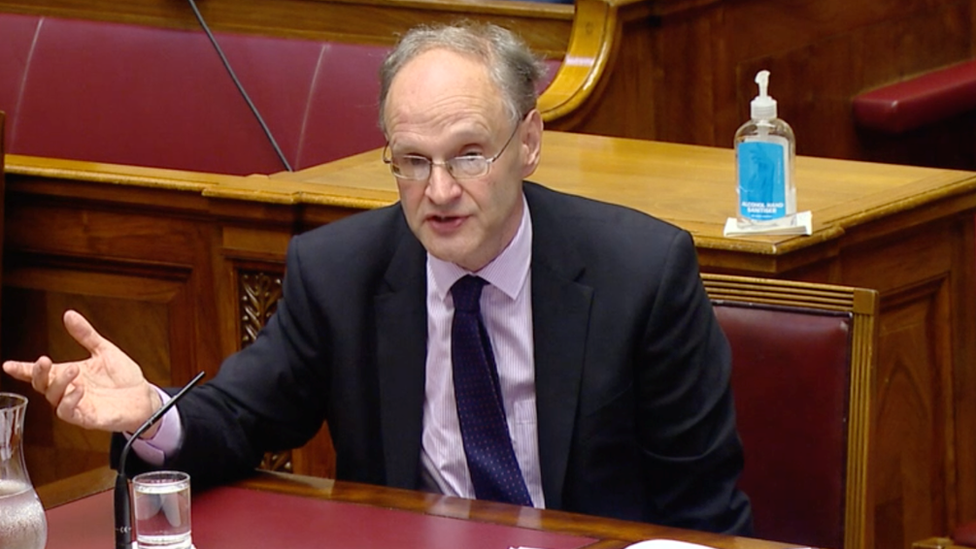A-levels: A is for algorithms, B is for Boris, C is for CCEA results strife
- Published

The UK is "the most successful political partnership in the world", according to Prime Minister Boris Johnson, who visited Northern Ireland this week.
Inevitably, First Minister Arlene Foster agreed, whilst Deputy First Minister Michelle O'Neill begged to differ.
But how well is the partnership delivering for our children when it comes to the vital business of educational qualifications? You don't have to be an expert to conclude that a UK school report would read "could do better" right now.
Devolution was supposed to allow different parts of the UK to develop their own, locally-tailored approaches to the delivery of services like education and health.

Boris Johnson and Taoiseach Micheál Martin in the gardens of Hillsborough Castle on Thursday
When Tony Blair signed off on the Scottish Parliament and Welsh Assembly, he hoped devolution would deliver on these bread and butter issues, thereby softening calls for outright independence.
Teenagers feeling discrimination
In Northern Ireland, putting power into the hands of local parties had the added attraction of helping to facilitate an end to decades of conflict.
It seems a safe bet that, back in the 1990s, no one assumed devolution would lead to teenagers in one part of the UK looking enviously at the fate of their counterparts in another region and feeling they have been discriminated against.

Scotland's education minister is now granting Scottish pupils the grades predicted by teachers
That's certainly the case in 2020, as Northern Ireland school A-level and AS students now wish Peter Weir would apply the same level of leniency as his Scottish counterpart, John Swinney.
Mr Swinney performed a dramatic U-turn in granting all Scottish pupils the grades predicted for them by their teachers. Mr Weir isn't following suit, a policy he views as more in line with England and Wales.
A is for 'algorithms'
The logic of Mr Weir's argument about the need to maintain the credibility of Northern Ireland's educational qualifications is clear.
He doesn't want universities and employers regarding the grades from Northern Ireland's Council for Curriculum Examinations and Assessment (CCEA) as untrustworthy.
However, the unfairness of an algorithm determining the fate of individual pupils without any reference to their efforts in the classroom is compounded by the unfairness of education ministers from different parts of the UK taking such radically different approaches.

Mr Weir said that that if teacher predictions were used without standardisation, the results would not have "any level of credibility"
At the time of writing, Mr Weir is standing firm and continues to enjoy the backing of his leader, Arlene Foster.
But other Stormont parties are increasingly critical and it will be interesting to see what impact the publication of GCSE results next Thursday has on the fraught tempers of pupils, parents and teachers.
Of course, the educational systems across the different parts of the UK have long been distinct.
'Level playing field'
The qualifications for which Mr Swinney performed his U-turn were, after all, Scottish "Highers" and not A-levels. Moreover, the third-level tuition fees required in Scotland, Northern Ireland, England and Wales are set at radically different levels, depending on where a student comes from.
But if our young people are going to compete in a UK common market for jobs and university places, then you would hope they would be guaranteed - in so far as is possible - a level playing field.
I gather one of the slogans being considered for the celebration of Northern Ireland and the UK's centenary next year is "100 Years Young". Putting all the old constitutional arguments to one side, let's hope our teenagers will soon feel able to look forward to their futures with hope and dynamism.
We don't want many of them left harbouring a belief that - during what was already an extraordinary tough time for their generation - the complex educational system of the UK has let them down.
- Published14 August 2020

- Published13 August 2020

